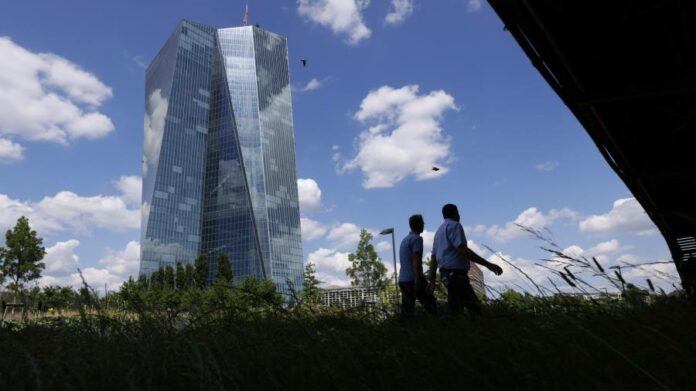European Central Bank policymakers are split over how much longer they will need to keep raising interest rates beyond their next policy meeting to tackle stubbornly high inflation.
Bundesbank president Joachim Nagel, one of the more hawkish ECB council members, said there was still “a long way to go” to reach the central bank’s inflation target of 2 per cent, even after rate-setters raised the benchmark deposit rate by a quarter-point to 3.5 per cent on Thursday — its highest level since 2001.
“We may need to keep raising rates after the summer break,” Nagel said in a speech in Amsterdam.
His comments went further than ECB president Christine Lagarde did in the press conference following Thursday’s decision, in which she only said rate-setters were “very likely” to raise rates again in July.
While other council members agreed that official borrowing costs may need to keep rising beyond September, the French central bank governor François Villeroy de Galhau has pushed back against the increasingly hawkish mood.
“Nobody should rush to a premature conclusion about our calendar, nor about our terminal rate,” said Villeroy, adding that the market reaction to the ECB decision was “excessive” after the euro surged against the dollar on Thursday and eurozone government borrowing costs jumped.
“We are data driven, we are not forecasts driven,” he said, pointing to signs that eurozone inflation may have peaked and “underlying price pressures are softening” as evidence that the ECB’s recent tightening of policy was working.
However, Belgium’s central bank head Pierre Wunsch said that if core inflation, which excludes volatile energy and food prices, kept rising at an annual rate of about 5 per cent “then we will increase [interest rates] beyond September”.
Slovenian central bank boss Boštjan Vasle, another of the ECB’s more hawkish council members, also said a September rate rise was possible “if it turns out that inflation is more persistent than it seems at the moment”.
While eurozone inflation has fallen from the 10.6 per cent peak in October to 6.1 per cent in May, it remains well above the central bank’s 2 per cent target. The ECB’s new quarterly forecasts, published on Thursday, show officials expect the headline rate of inflation and the closely watched core rate to remain above 2 per cent until at least 2025. The core rate was 5.3 per cent in May.
The hawkish projections led economists at several major banks — including Goldman Sachs, JPMorgan, UniCredit and BNP Paribas — to change their bets on how high eurozone rates will rise. They now expect two more interest rate increases, up from earlier expectations that the central bank would halt its tightening cycle in July.
“The updated inflation projections point to a higher hurdle to finish the hiking cycle in July,” said Sven Jari Stehn, chief European economist at Goldman Sachs.
Some economists said the ECB’s new growth forecasts were too optimistic, especially after the eurozone economy shrank in the past two quarters. The ECB said on Thursday it expected an expansion of 0.9 per cent in 2023, down from an early forecast of 1 per cent growth.
Holger Schmieding, chief economist at German bank Berenberg, said: “If core inflation continues to recede slightly further in coming months, as we expect, and if the data on the real economy are more in line with our call for just 0.3 per cent growth in 2023, the ECB will probably stay put in September.”
The IMF also warned of “persistently high” eurozone inflation on Friday and called for more rate rises, saying this would be needed over a “sustained period”. Eurozone member states should also rein in their budget deficits, the IMF said in a report on the bloc’s economy.






